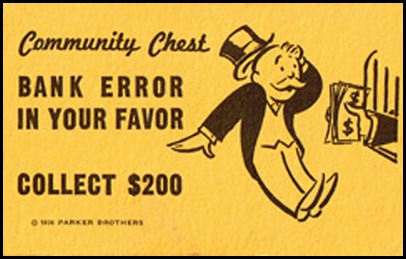 From the Department of Unintended Consequences, Comcast will likely be the biggest benefactor of a new Oregon law intended to attract Google Fiber to Portland.
From the Department of Unintended Consequences, Comcast will likely be the biggest benefactor of a new Oregon law intended to attract Google Fiber to Portland.
The Oregon Legislature rewrote the state’s tax laws after learning Google objected to Oregon’s concept of “central assessment,” which calculates local property taxes partly on the value of a company’s brand. The tax policy proved so contentious, Comcast spent years fighting the tax before ultimately losing its appeal before the Oregon Supreme Court in 2014. After two years of lobbying Google to come to Portland, nothing short of a repeal or exemption of this tax policy was likely to get the search engine giant to reconsider.
Comcast officials must not have believed their luck when state lawmakers resolved the tax problem for them, all because of efforts to woo Google back to the state. Legislators proposed a tax exemption for companies that agreed to invest in gigabit speed broadband and deliver it to the majority of the state’s broadband customers. The new law was a clear invitation to Google to begin wiring the state for fiber, but Comcast has crashed the party instead.
Comcast officials argue their own new “Gigabit Pro” service qualifies the cable company for the same tax exemptions Oregon intended Google to receive, despite the fact its 2-gigabit offering costs a fortune and is unlikely to attract more than a fraction of Comcast customers.
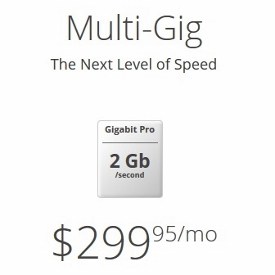 Oregon lawmakers wrote a law seeking to assure equal access by prohibiting companies from targeting only affluent neighborhoods for fiber upgrades, while forgetting to consider the cost of the service itself. Gigabit Pro will never feature prominently in Portland’s challenged neighborhoods at a cost of $4,600 for service during the first year.
Oregon lawmakers wrote a law seeking to assure equal access by prohibiting companies from targeting only affluent neighborhoods for fiber upgrades, while forgetting to consider the cost of the service itself. Gigabit Pro will never feature prominently in Portland’s challenged neighborhoods at a cost of $4,600 for service during the first year.
Lawmakers now face the wrath of several local tax authorities that report they’ll lose tens of millions in tax revenue if Comcast successfully applies for an exemption. Staff members of the Oregon Public Utility Commission believes Comcast ultimately will qualify for that exemption, even if only a few customers pay Comcast’s asking price for gigabit service.
“If the application is approved, schools, libraries and local governments across the state would receive significantly less revenue,” wrote Mary Beth Henry, director of Portland’s Office of Community Technology, in a letter to state regulators. “This application was not the kind anticipated by the Legislature.”
Portland officials argue Comcast is violating the spirit of the new broadly written law by pricing its fiber service at $300 a month, far out of reach of most households. Google Fiber typically charges $70 for its gigabit service.
Critics of the legislature contend this isn’t the first instance of the Oregon body making a mess of things. In addition to not bothering to define what qualifies as “affordable” Internet, how much companies had to spend to offer it, or how many customers had to actually sign up for the service, language in the original bill accidentally left Google Fiber off the exemption list.


 Subscribe
Subscribe “Last night, Internet service for a number of our customers in the western part of the country was degraded or unavailable for several hours,” Comcast wrote on its blog this morning. “We had a team on this immediately, and were able to restore full service to most customers by 9pm PT.”
“Last night, Internet service for a number of our customers in the western part of the country was degraded or unavailable for several hours,” Comcast wrote on its blog this morning. “We had a team on this immediately, and were able to restore full service to most customers by 9pm PT.”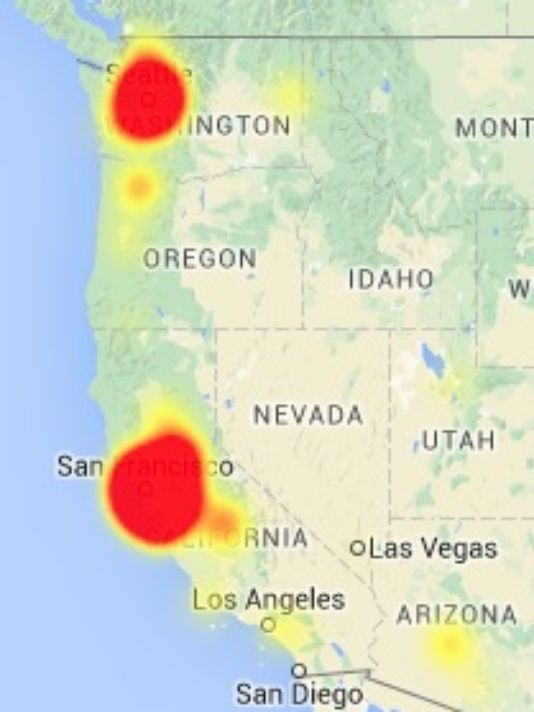
 Frontier Communications customers lucky enough to have access to fiber to the home service will find broadband speeds have been increased to offer identical upload and download rates.
Frontier Communications customers lucky enough to have access to fiber to the home service will find broadband speeds have been increased to offer identical upload and download rates.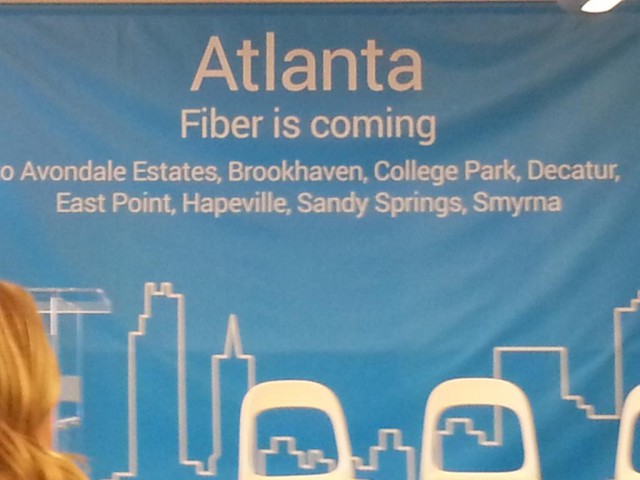 Google has announced it will bring its fiber broadband service to four new cities — Atlanta, Charlotte, N.C., Raleigh-Durham, N.C. and Nashville, Tenn., according to
Google has announced it will bring its fiber broadband service to four new cities — Atlanta, Charlotte, N.C., Raleigh-Durham, N.C. and Nashville, Tenn., according to 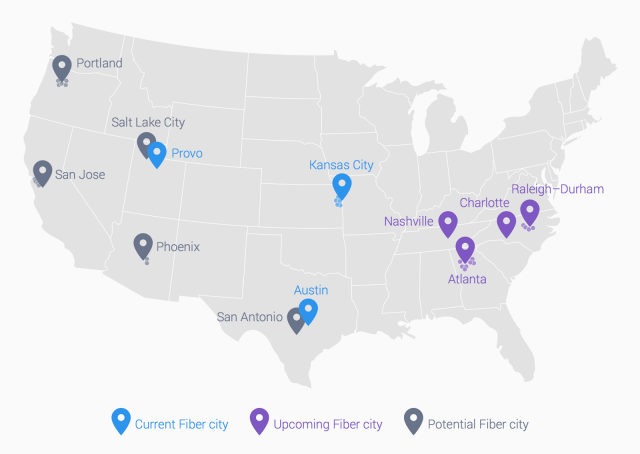
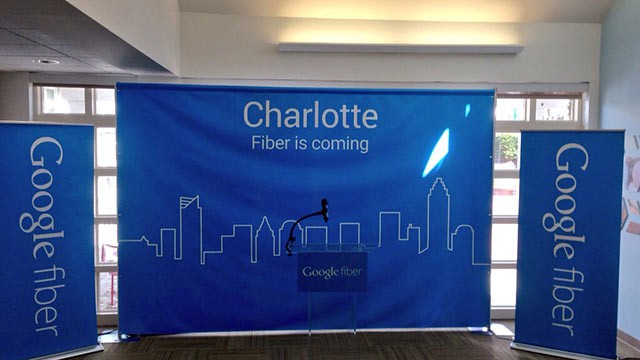 Google officials have also been reportedly sensitive to local government red tape and regulation. In Portland, the Journal reports Google has put any fiber expansion on hold there because Oregon tax-assessment rules would value Google’s property based on the value of their intangible assets, such as brand. That would cause Google’s property taxes in Oregon to soar. Until the Oregon state legislature makes it clear such rules would not apply to Google Fiber, there will be no Google Fiber in Portland.
Google officials have also been reportedly sensitive to local government red tape and regulation. In Portland, the Journal reports Google has put any fiber expansion on hold there because Oregon tax-assessment rules would value Google’s property based on the value of their intangible assets, such as brand. That would cause Google’s property taxes in Oregon to soar. Until the Oregon state legislature makes it clear such rules would not apply to Google Fiber, there will be no Google Fiber in Portland.
